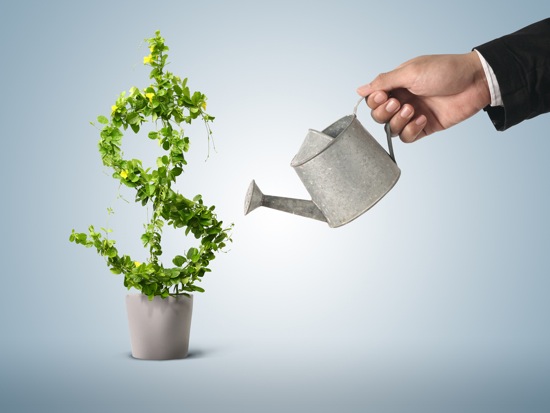Shifting conditions open doors for sustainability-driven profits

The business case for integrating sustainability into a company's business model only seems to keep getting better.
That's the finding froma new reportout today from MIT Sloan Management Review and the Boston Consulting Group. In their survey of 2,600 executives from around the globe, they find that nearly half of the respondents changed their business models in the past year in the face of sustainability opportunities. And 37 percent of executives reported profits from their sustainability efforts -- a 23 percent increase from last year's count.
Growing consumer demand for sustainable products -- and companies looking for lower energy use as energy costs increase -- is driving much of this change.
To illustrate how this shift is occurring, the report draws on the experiences of big corporate players that took the survey, including AT&T, Campbell Soup’s, Dell, Intel, Kimberly-Clark, PepsiCo, Sprint, Timberland, UPS and Zipcar. These companies -- which have changed their business models and profited from sustainability efforts -- are dubbed "Sustainability-Driven Innovators" in the report and made up 23 percent of the respondents.
"Sustainability-Driven Innovators see the opportunity differently than do companies that haven't gleaned sustainability's financial rewards," said David Kiron, executive editor at MIT SMR and a coauthor of the report. "They don't dwell on it as a cost issue. They focus on how their efforts can increase market share, boost energy efficiency and build competitive advantage."
Photo ofplant being wateredprovided bySCOTTCHANvia Shutterstock.
Among these innovators, 54 percent have developed a business model that makes the case for sustainability -- while just 34 percent of the overall 2,600 respondents had done so.
"You always create a business case," said Sprint CEO Dan Hesse in the report. "But you may need to use criteria with a longer time horizon. But as long as the return is positive, you can do it knowing it's in shareholder interests."
Hesse points to the company's investment in solar power as an example of a payback over a longer time horizon.
Sprint also invests in making its phone easy to disassemble, allowing consumers to recycle waste and refurbish phones.
“It’s important companies balance long term more sustainable business strategies with profitable revenue," said Sprint spokeswoman Marci VerBrugge-Rhind. "Ultimately these innovative solutions can take longer to pay off but have a better return on investment, and they mitigate a company’s footprint.”
Customers play a central role in companies making the biggest shifts towards sustainability: 80 percent of the innovators are more likely to increase collaboration with customers -- and more likely to collaborate with competitors, suppliers and other business units at the company. Nestlé, for example, developes its "pre-competitive" practices by bringing together customers, advisors and competitors. It even started talking with competitors Danone and Unilever about sustainable agriculture 10 years ago.
"We were like the oil and gas industry," said Hans Jöhr, the Corporate Head of Agriculture of the Switzerland-based food giant, in the report. "A lot of what we did was having a negative impact. Instead of each of us working on our own, we decided to work together to figure out principles, practices and procedures."
But for all this cheery news, the report also finds that nearly half of the 2,600 companies are still finding it a challenge to quantify the impacts of sustainability, while another 37 percent said integrating sustainability conflicts with their priorities.
Also, despite the focus on companies in the industrialized countries, the real radical shifts may be happening in developing world. The report finds the majority of innovators are located in emerging markets. North America has the lowest rate of innovation and added profit while Africa is at the top, according to the report.




